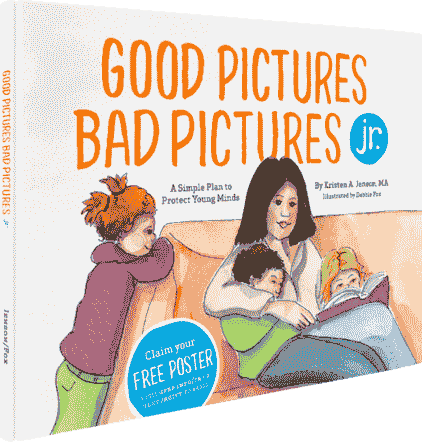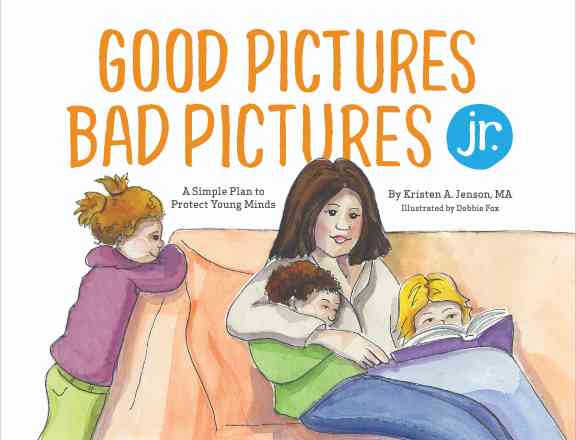

Warning Signs of Sexual Abuse--How to Protect Your Child

April is National Child Abuse Prevention month. Child sexual abuse can happen to any child. All kids are vulnerable and that’s why every parent should know the signs of both the abusers and the abused.
- How do perpetrators act to get access to kids?
- How do abused kids act?
What is child sexual abuse?
Let’s just establish one fact: children are not mature enough to consent to sexual engagement. Period. (It’s despicable that there are adults and even organizations that are trying to normalize sexual relationships between adults and children!)
Children can be traumatized by a variety of sexual behavior. RAINN (Rape, Abuse & Incest National Network) lists these as forms of child sexual abuse:
- Exhibitionism, or exposing oneself to a minor
- Fondling
- Intercourse or sex of any kind with a minor, including vaginal, oral, or anal
- Masturbation in the presence of a minor or forcing the minor to masturbate
- Obscene phone calls, text messages, or digital interaction
- Producing, owning, or sharing pornographic images or movies of children
- Sex of any kind with a minor, including vaginal, oral, or anal
- Sex trafficking
- Any other sexual conduct that is harmful to a child's mental, emotional, or physical welfare
What are the warning signs of perpetrators?
If child sexual abusers all looked like creepy strangers, parents would have a much easier task. The truth is that 93% of perpetrators of sexual abuse on minors are known to the victim. It’s difficult to be suspicious of every person our child may interact with, or to consider that someone we know and like might be targeting our children. The following signs gleaned from Stop It Now often characterize a perpetrator who sexually abuses children:
- Seems to prefer spending time with children over adults.
- Turns to a child for emotional or physical comfort by sharing personal information normally shared with adults.
- Spends an excessive amount of time communicating with children via email, text or private messaging.
- Singles your child out for special treatment: Ask yourself, does an adult or older minor frequently volunteer to babysit for free, offer to take a child on special outings alone, offer special tutoring sessions or lessons, buy gifts or give money for no apparent reason?
- Allows a child to consistently get away with inappropriate behavior (i.e. things their parents would not allow).
- Makes inappropriate comments about the sexual parts of a developing child.
- Makes sexual comments or tells “dirty jokes” in front of a child.
- Exposes a child to pornography or adult sexual activities without apparent concern.
[[CTA]]
Warning signs of children who have been sexually abused
No one can completely protect a child 100%. And not every child who is abused shows any of these warning signs. However, many do and knowing the typical signs of child sexual abuse can help you recognize and act to stop the abuse. This list is from the Child Sexual Abuse article on the RAINN website:
Physical signs
- Bleeding, bruises, or swelling in genital area
- Bloody, torn, or stained underclothes
- Difficulty walking or sitting
- Frequent urinary or yeast infections
- Pain, itching, or burning in genital area
Behavioral signs
- Changes in hygiene, such as refusing to bathe or bathing excessively
- Develops phobias
- Exhibits signs of depression or post-traumatic stress disorder
- Expresses suicidal thoughts, especially in adolescents
- Has trouble in school, such as absences or drops in grades
- Inappropriate sexual knowledge or behaviors
- Nightmares or bed-wetting
- Overly protective and concerned for siblings, or assumes a caretaker role
- Returns to regressive behaviors, such as thumb sucking
- Runs away from home or school
- Self-harms
- Shrinks away or seems threatened by physical contact
7 ways you can protect your kids
#1. Start talking early to teach body safety rules and boundaries. You don’t need to describe sexual abuse in detail--simple but firm guidelines about privacy and using proper terms for private parts (of both genders) are a good start for very young children.
#2. Be aware that pornography fuels child on child harmful sexual behavior. Help your young child reject “bad pictures” by reading them Good Pictures Bad Pictures Jr.: A Simple Plan to Protect Young Minds. Included in the book are several body safety rules that help children say no to taking pictures of their private parts. Sextortion is an alarming and growing problem, and even young children need to know never to take or share inappropriate pictures.
#3. Teach young children about good secrets and bad secrets. Perpetrators continue to abuse because they either threaten or bribe the child to keep the abuse secret. Assure your child that it is always the right decision to tell you if anyone every tries to get them to keep an inappropriate secret. One of the best books I’ve found to help kids learn the difference between good secrets and bad secrets is the book Do You Have a Secret?
#4. Teach kids the 3 Big Red Flags of Child Abuse. Kids need to know that no one should use bribes, threats or try to normalize inappropriate sexual behavior.
#5. Single moms, carefully choose your child’s male role models. Sadly many sex abusers prey on kids of single moms. Single moms often want a male figure in their children’s lives and may welcome someone who offers support like babysitting. 95% of perpetrators are male, but I just spoke to a mom whose sister-in-law was the perpetrator who sexually abused her young daughters.
#6. With few if any exceptions, nix sleepovers. Who came up with this idea of sleepovers, anyway? Pedophiles??? I have come to the conclusion that nothing good comes from sleepovers! At the very least, you count count on cranky kids the next day. We banished sleepovers in our family. When my daughters were invited to a sleepover, I picked them up by 10 pm and would bring them back in the morning for breakfast if they wanted (which they never did).
At the very least, don’t allow your child to sleepover unless you know the family very well, have been over to their home multiple times and know exactly who will be there. Also, make sure your child has a code word or phrase if they need to call you to get them out of a difficult situation. Read more about creating code words here.
#7. Regularly check in with your child and ask, "Has anyone ever tried to look at, touch or take pictures of your private parts?" Some kids are just too scared to tell someone. We've heard from sexual abuse victims that say they wish someone would have just asked them!
For more helpful info, read What You Can Do in 5 Minutes to Protect Kids from Sexual Abuse
If you suspect child abuse, please call the National Sexual Assault Hotline at 800.656.HOPE (4673) or chat online at online.rainn.org.




Good Pictures Bad Pictures Jr.
“I highly recommend this book to all people with children. A must have for all parents!” —Amazon Review








